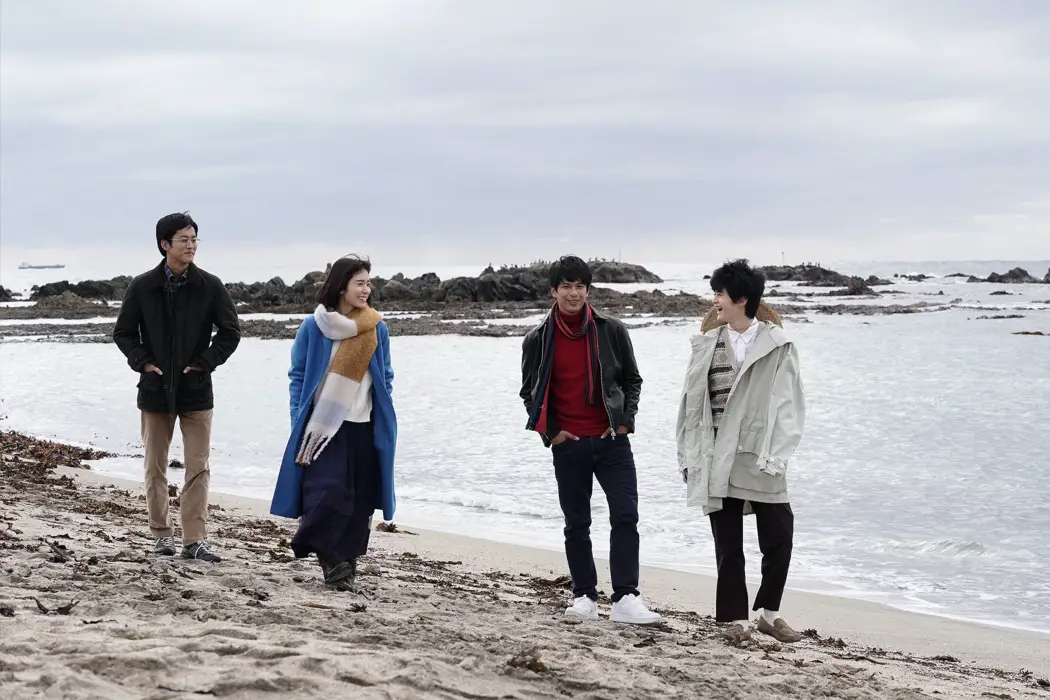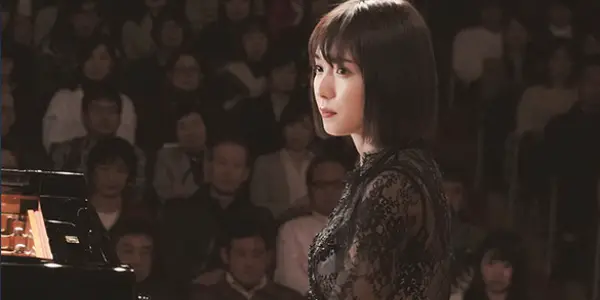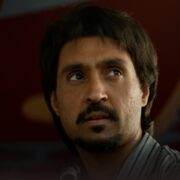LISTEN TO THE UNIVERSE: A Traditional Competition Film, With Something Extra

Soham Gadre is a writer/filmmaker in the Washington D.C. area.…
“Why this obsession to find prodigies?”
“Inferiority complex… we are not the geniuses who made history. That’s it.”
This exchange between Nathanael Silverberg (Andrzej Chyra) and Mieko Saga (Yuki Saito), two judges of the Shogei International Piano Competition, encapsulates a dark reality of being a talented youth. We see this sort of pressure everywhere from youth sports where children as young as thirteen are showcased as “the next great thing” in magazines and cover stories before they even understand themselves, to a political discourse where the annoying and irresponsible “the kids will save us” rhetoric of older generations who so willingly hands down a world they failed to the younger, yet-to-be-jaded population as some sort of Godsends. In Kei Ishikawa’s meditative but tense drama Listen to the Universe, we dive into the world of a cutthroat piano competition where legacies and dreams are made and shattered before any of its contestants sniff adulthood.
Youth Against Youth
Out of many competitors, the film concentrates on five – Akashi (Tôri Matsuzaka), Masaru (Win Morisaki), Jin (Oji Suzuka), Jennifer (Rila Fukushima), and at the center of them all, Aya Eiden (Mayu Matsuoka). Aya is the prototypical competition film protagonist, deeply in conflict with herself, her past, and the specter of not living up to her prodigal talents haunting her throughout the movie. She finds an unwanted rival in Jennifer, friends among the rest, and pressure from everywhere to navigate her mysterious disappearance from the same competition nearly ten years ago. She has flashbacks to the moments where, as a young girl, she froze up on stage. She remembers her mother who taught her the piano. More than anything, and possibly tragic of all, at the mere age of 20, she considers this her last chance.

The external beauty of Listen to the Universe, impeccably shot like a magazine photographer’s highlight reel, belies a tense and haunting feeling of despair. The competitors are barely adults but they are at the end of their chance to prove themselves worthy of a dream. After Jennifer is eliminated she lashes out at Aya saying “It’s not fair. I practiced so hard!” The judges are ruthless, deliberating in private rooms nitpicking small elements of the performances, scoffing at the young competitors and knocking them down a peg whenever possible.
Notes on Personality
While competition and a strive for excellence require discipline and care in the world of art, Ishikawa’s film considers the most humanistic and appreciable moments are those where the competitors find camaraderie amongst each other. A few wonderful scenes show the contestants together on the beach making footprints in the sand that resemble the note assemblage in a Chopin composition. They discuss their fears and insecurities briefly with each other. Jin, the most expressive and contemplative of the musicians, asks Aya why she plays the piano. She gives an awkward and unsure answer. Their philosophies on music and what it means in their greater life are all different but each one, in their own way, hopes to find joy.

The film’s central competition segments are tense, dramatic, and wonderfully edited. The second round of competition in particular, which features each contestant playing “Spring and Asura”, an original composition created specifically for the film, with their own personally composed cadenza. This is a brilliant way for Iwashita to help bring the audience deeper into the personal connections his characters have with music, beyond their own words. Through their foot movements, the positioning of their hands, the shaking of their heads, and the overall demeanor and tone with which they play, the emotional release of each character into their own music. Even the way they write their cadenzas down is indicative of their personalities – Masaru using a digital tablet with neat measures, Jin with a madman’s scribbles, and Aya…. blank.
Conclusion
Listen to the Universe does the rare feat of turning a competition against itself. In its confrontation of styles, structures, and characters’ personal relationships to music, it confronts the issues with pitting talented artists against each other, and especially those artists who still have their entire life ahead of them. At a point towards the end of the movie, Mieko Saga meets Aya Eiden in the restroom and tells her it’s not too late to quit and rid herself of the burden of failure. Saga, a former “prodigy” with all the talent and pressure in the world, sees Aya as a younger version of herself. When we think to how much society and it’s structures force us to constantly compare and constantly make us feel like we are not doing enough or are not good enough, it’s good to take a step back and find the answer to why we are doing the things we love.
Listen to the Universe played as part of the 2021 Japan Film Society and Agency for Cultural Affairs Film Showcase.
Watch Listen to the Universe
Does content like this matter to you?
Become a Member and support film journalism. Unlock access to all of Film Inquiry`s great articles. Join a community of like-minded readers who are passionate about cinema - get access to our private members Network, give back to independent filmmakers, and more.
Soham Gadre is a writer/filmmaker in the Washington D.C. area. He has written for Hyperallergic, MUBI Notebook, Popula, Vague Visages, and Bustle among others. He also works full-time for an environmental non-profit and is a screener for the Environmental Film Festival. Outside of film, he is a Chicago Bulls fan and frequenter of gastropubs.













